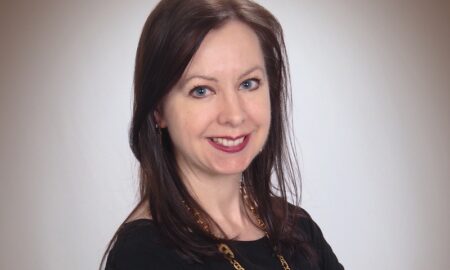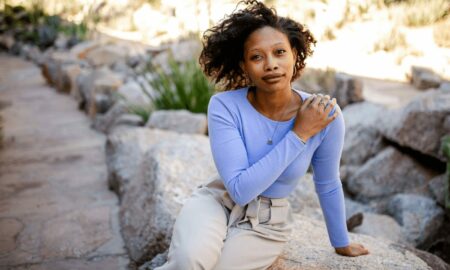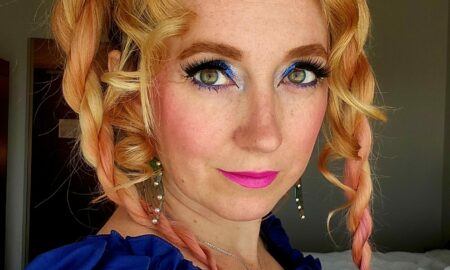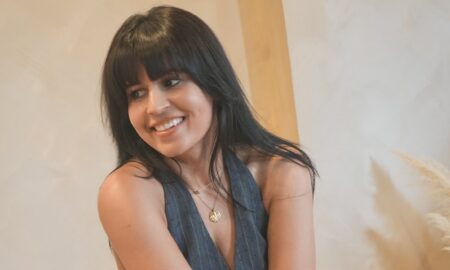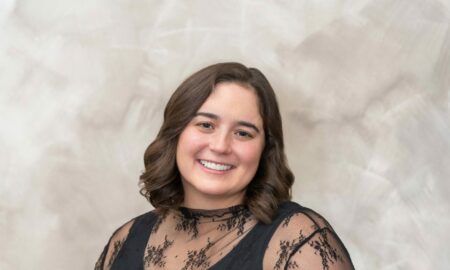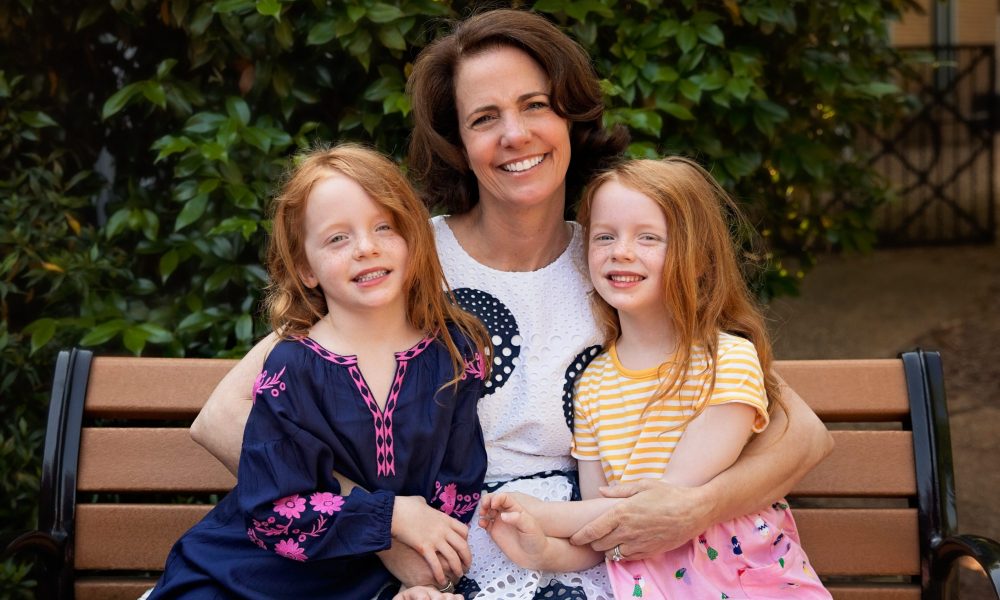

Today we’d like to introduce you to Stacey Fitzgerald.
Stacey, let’s start with your story. We’d love to hear how you got started and how the journey has been so far.
For me, the documentary project, Saving the Rabbits of Ravensbrück, really started over 20 years ago, on a cold night in the isolated hills of Northwest Alabama. I was sitting around my Grandmama’s fireplace, visiting with relatives and discussing a recent trip to Paris. My great-uncle John gently tugged at his Liberty overalls, shuffled his dusty farmer boots, and finally said in the quiet pragmatic tone of the people of this region that he too had been to Paris. He had been there with Patton.
The room grew quiet and still. He had rarely mentioned the war. All drew nearer to him, expecting to finally hear about Omaha Beach, the Battle of the Hedgerows, and the Battle of the Bulge. Instead, he spoke about a women’s concentration camp his division had liberated. After relating the horrors of what he had seen and the courage and solidarity of the starving and sick women in the barracks, he told us that he was afraid that their story would be lost, that one day, people might even say that it never happened. “And you,” he said, turning to me, “will tell them what your great-uncle saw, with his own two eyes.” And I promised I would.
So, when my friend, Martha Hall Kelly, told me the incredible story of the Rabbits of Ravensbrück, the subject of her instant New York Times best seller, Lilac Girls, I began to research the women in the barracks that my uncle had told me about that cold night so long ago. Since then, I’ve interviewed over a dozen survivors of Ravensbrück – the largest women’s only concentration camp in the Third Reich – as well as world-renowned subject matter experts on both the camps and women in the resistance. It’s been a three-year journey of research, fundraising, and filming, but I’m finally ready to start pulling together the documentary that tells the story of not only how women survive and resist, but how this group of women pulled off one of the most incredible rescues in Nazi concentration camp history.
My uncle wanted me to tell the story of what he saw, of the women in the barracks. I’ve since discovered that many of the women he liberated started their journey at Ravensbrück. In many ways, this is their story. And, as I’ve discovered, it’s our story, our struggle – and our strength – as well.
We’re always bombarded by how great it is to pursue your passion, etc. – but we’ve spoken with enough people to know that it’s not always easy. Overall, would you say things have been easy for you?
When I started, the obstacles seemed overwhelming. Not only did I have to find these survivors in Poland and France – if they were indeed still alive – but then I would have to convince them to tell me, a stranger from the US, their story. I would also have to somehow raise the hundreds of thousands of dollars to pay for the research, production, and post-production of the film. It was only through the help and support of others that I was successful in finding the women, conducting the interviews – and raising over $200,000 to date. We are still in the process of fundraising to complete the film, but we’ve gotten the important interviews – and some of them just in time. One survivor passed away two weeks after we were able to get her story.
My advice is to remember that there is great strength in cooperation, in uniting with others to achieve a common goal. You don’t have to give up your vision or control; you just have to find honest people who share your passion for your venture or project, who are just as excited about the possibilities and the impact of your work. For example, Martha Hall Kelly graciously shared with me her research and the many contacts she made while writing her novel; traveled with me and helped me set up my first interviews at Ravensbrück; and helped me with fundraising events in Chicago, Atlanta, and elsewhere. Other women – and men – have also worked hard on this project and helped me minimize my costs, by either providing reduced rates for their services or even donating their time/services. And people from all over the United States have donated money through our website, through our Kickstarter campaign, and during our events to provide the money needed to make this film happen. You will be surprised at the help you will receive, if you are passionate and excited about your work – and you gather up the courage to just ask. As I’ve learned from the women of Ravensbrück, we can accomplish the impossible – through mutual aid and cooperation.
So, as you know, we’re impressed with your business – tell our readers more, for example what you’re most proud of as a company and what sets you apart from others.
Although my last project was the Emmy award-winning program, A Southern Celtic Christmas, I didn’t start out as a documentary filmmaker. My original degree was in Finance; I became a banking regulator after college. The skills I learned, however, translated well to my current work. My job was to research records, interview management, and create a report – an objective “story” of what had happened in the past and what that meant for the future. It was my love in storytelling, photography, and film that led me to go back to school to study film production. After making some short films, I produced and directed Delivery Boy Chronicles, a feature-length comedy starring Grammy nominee, Shawn Mullins. The film has screened internationally at film festivals including: Newport Beach Film Festival, California Independent Film Festival, Atlanta Film Festival, and Filmstock International Film Festival (UK). I have also produced and directed television commercials for nonprofit clients, including an Addy-award winning campaign for the Georgia Special Olympics.
Do you think there are structural or other barriers impeding the emergence of more female leaders?
Although the industry is changing, I believe it has been more difficult for women – at least starting out – to be a director in the male-dominated film industry. When I directed a feature-length script, I was constantly asked why a woman would want to direct a film with a male lead. I also had to explain to men – and women – why I would be qualified to direct, when men were rarely questioned about their qualifications. But I did find, that once you proved yourself on the set, you were treated no differently than a man might have been treated, or so it seemed to me. I’ve always been grateful for the tremendous support from my crew, regardless of their gender or mine.
The bigger issue for me, as a woman, was just realizing that I could be a filmmaker. Sometimes, we miss career opportunities because we’ve limited our field of vision to only current role models in our society, what we’ve seen other women do and achieve. It’s because of this that I feel it’s important to tell stories about women that break the mold of what we expect. I want my own daughters to see that women are capable of much more than we’ve been conditioned to expect of ourselves.
Contact Info:
- Website: www.rememberravensbruck.com
- Phone: 678-595-6457
- Email: sfitzfilm@gmail.com
- Instagram: https://www.instagram.com/rememberravensbruck
- Facebook: https://www.facebook.com/RabbitsofRavensbruck
- Twitter: https://twitter.com/SavingRabbits








Image Credit:
Roby Robinson, Inc., Remember Ravensbruck, LLC
Getting in touch: VoyageATL is built on recommendations from the community; it’s how we uncover hidden gems, so if you know someone who deserves recognition please let us know here.














